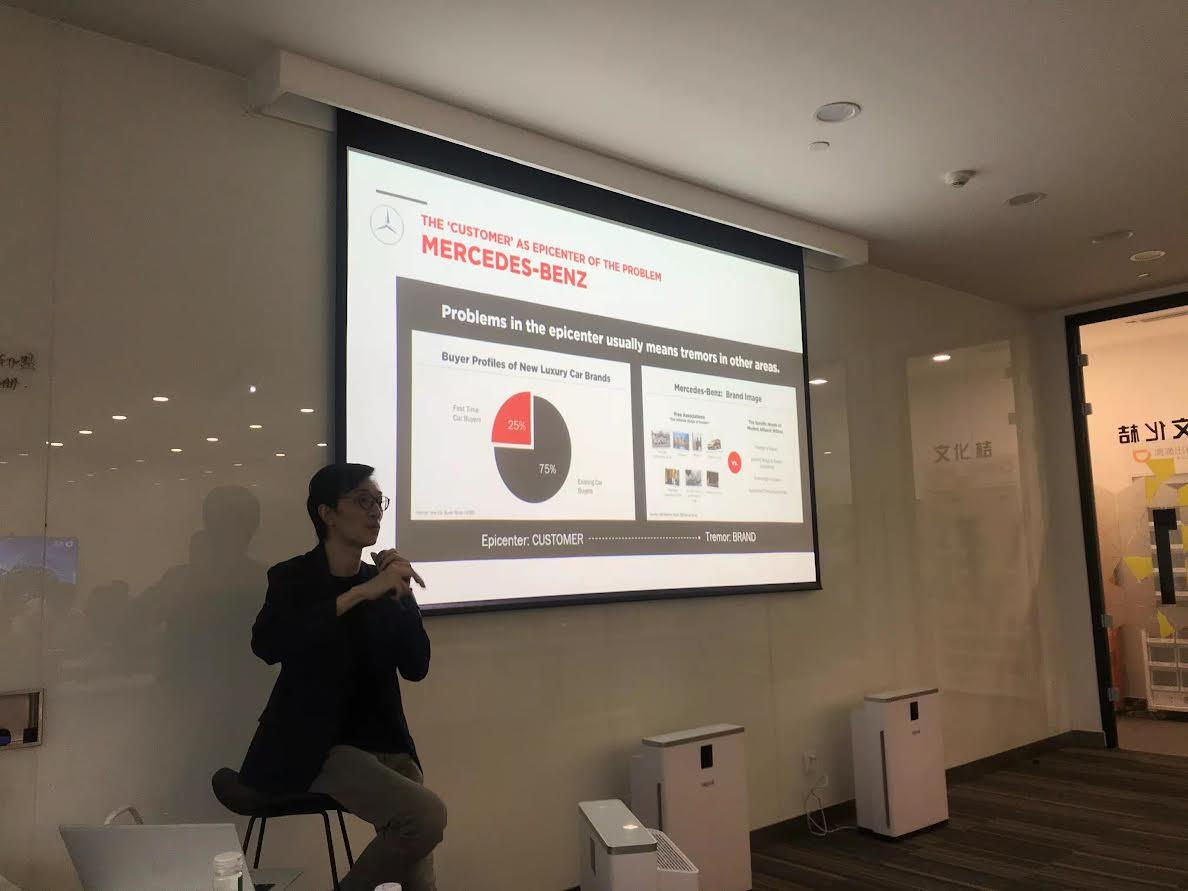Kenny Au-Ieong
Planning Director in Wunderman Thompson
Overseas Graduate in Marketing, Advertising, Management
Kenny Au-leong = KA
1. What is your job nature? What was your reason for working in the GBA?
KA: I work in an advertising agency as a Planning Director. My responsibilities are to formulate brand positioning and communication strategies, helping corporations inside and outside the GBA with brand building to achieve business goals. With the rapid economic development of the Greater Bay Area, both long-established and emerging companies are looking for expertise to help them develop strategies and build their brands domestically and globally. I chose to come to the GBA because of the enormous opportunities. For a long time, foreign brands have been seeking to enter the Chinese market. In recent years, many Chinese brands have established leading positions in the mainland market, so they all hope to expand into the international market. This is especially apparent in the GBA as it has become a dynamic base for various Chinese companies with the support of the huge domestic market, they can explore business growth overseas.
2. How does working in the GBA differ from working in Hong Kong?
KA: There are individuals from various backgrounds, different organisations and cultures in the GBA. You can broaden your horizons, experiences and ways of thinking as you meet and network with people here. Individuals from different cities and around the world come to the GBA. Guangzhou in particular, is not only a place with rich Lingnan history and traditional culture, but also a diverse city integrating various cultures.

3. What is the most prosperous industry in the GBA? What advice would you to give young people who wish to work and live in the GBA?
KA: The innovation and technology sector. Our national and local governments have invested immense effort and resources into developing the GBA as a technology hub. There are many local and even world-renowned corporations in the GBA. The completion of Hong Kong Science Park’s Shenzhen Branch will further enhance the development of this sector. Young people should keep an open mind to grasp the enormous opportunities in the GBA and the experience can be very rewarding. With the well-developed transportation network, Mainland cities in the GBA, and are very close to Hong Kong. A lot of my colleagues used to travel frequently between the Mainland and Hong Kong before the pandemic (and possibly after quarantine-free travel resumes), and the GBA provides a great platform for young people to explore bigger markets.
4. What helps you the most in your career/entrepreneurship journey in the Mainland?
KA: Your network is very important and expanding it is easy, you can start by joining WeChat groups, they could be tenant groups, sports groups or company/former company groups. If you ask any questions in these group chats, even those you don’t know will respond very quickly. Mainland people understand the importance of networking, and they are very conscious of helping each other.
5. What was your first impression on the Mainland cities of GBA?
KA: People here are very enthusiastic. I could not speak Mandarin very well when I first arrived. However, my “language barrier” became my way of communicating with colleagues. Also, they knew I was living alone and they tried their best to make me feel at home.

6. Could you share with us the latest or an interesting trend in the Mainland?
KA: Summer camping has suddenly become a popular trend for these couple of years. People go camping in different outdoor places, and the prices of camping gear have since skyrocketed. Driving to camping sites and “car camping” are particularly popular. Location such as Guangdong Qingyuan is an ideal place for outdoor camping. Another interesting trend is the resurgence of Cantonese culture. Young people are very interested in Cantonese food culture, such as Dai Pai Dongs and Dim Sum. A lot of shopping malls and venues use Cantonese Culture as a theme to attract customers, such as hosting exhibitions and activities for photo-taking.
Acknowledgements
The Education Bureau would like to extend its heartfelt gratitude to the Greater Bay Area Homeland Youth Community Foundation for the permission to reproduce the relevant resources provided on website of Greater Bay Area Homeland Youth Community Foundation and the online youth platform of the “YO Place”.
